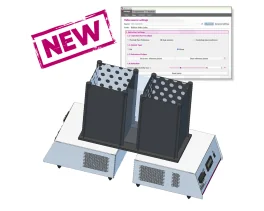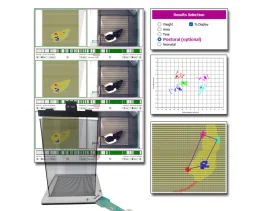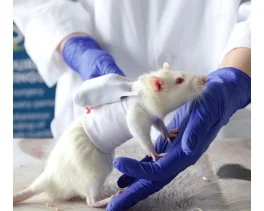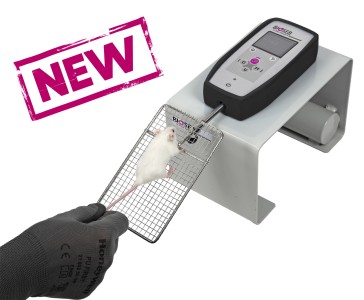Authors
A Drieu, I Buendia, D Levard, et al
Lab
Normandie Univ, UNICAEN, INSERM, U1237, PhIND ÒPhysiopathology and Imaging of Neurological DisordersÓ, Institut Blood and Brain @ Caen-Normandie, Cyceron, 14000 Caen, France, Normandie UniversitŽ, 14000, Caen, France
Journal
Translational Stroke Research
Abstract
The poor clinical relevance of experimental models of stroke contributes to the translational failure between preclinical and clinical studies testing anti-inflammatory molecules for ischemic stroke. Here, we (i) describe the time course of inflammatory responses triggered by a thromboembolic model of ischemic stroke and (ii) we examine the efficacy of two clinically tested anti-inflammatory drugs: Minocycline or anti-CD49d antibodies (tested in stroke patients as Natalizumab) administered early (1 h) or late (48 h) after stroke onset. Radiological (lesion volume) and neurological (grip test) outcomes were evaluated at 24 h and 5 days after stroke. Immune cell responses peaked 48 h after stroke onset. Myeloid cells (microglia/macrophages, dendritic cells, and neutrophils) were already increased 24 h after stroke onset, peaked at 48 h, and remained increasedÑalthough to a lesser extentÑ5 days after stroke onset. CD8+ and CD4+ T-lymphocytes infiltrated the ipsilateral hemisphere later on (only from 48 h). These responses occurred together with a progressive blood-brain barrier leakage at the lesion site, starting 24 h after stroke onset. Lesion volume was maximal 24Ð48 h after stroke onset. Minocycline reduced both lesion volume and neurological deficit only when administered early after stroke onset. The blockade of leukocyte infiltration by anti-CD49d had no impact on lesion volume or long-term neurological deficit, independently of the timing of treatment. Our data are in accordance with the results of previous clinical reports on the use of Minocycline and Natalizumab on ischemic stroke. We thus propose the use of this clinically relevant model of thromboembolic stroke with recanalization for future testing of anti-inflammatory strategies for stroke.
BIOSEB Instruments Used
Grip strength test (BIO-GS3)
Keywords/Topics
Accidents ischémiques transitoires (AIT); Système Nerveux Central (SNC)
Source :
https://link.springer.com/article/10.1007/s12975-019-00733-8

 Douleur - Allodynie/Hyperalgésie Thermique
Douleur - Allodynie/Hyperalgésie Thermique Douleur - Spontanée - Déficit de Posture
Douleur - Spontanée - Déficit de Posture Douleur - Allodynie/Hyperalgésie Mécanique
Douleur - Allodynie/Hyperalgésie Mécanique Apprentissage/Mémoire - Attention - Addiction
Apprentissage/Mémoire - Attention - Addiction Physiologie & Recherche Respiratoire
Physiologie & Recherche Respiratoire




































 Douleur
Douleur Système Nerveux Central (SNC)
Système Nerveux Central (SNC)  Neurodégénérescence
Neurodégénérescence Système sensoriel
Système sensoriel Système moteur
Système moteur Troubles de l'humeur
Troubles de l'humeur Autres pathologies
Autres pathologies Système musculaire
Système musculaire Articulations
Articulations Métabolisme
Métabolisme Thématiques transversales
Thématiques transversales Congrès & Meetings 2026
Congrès & Meetings 2026 